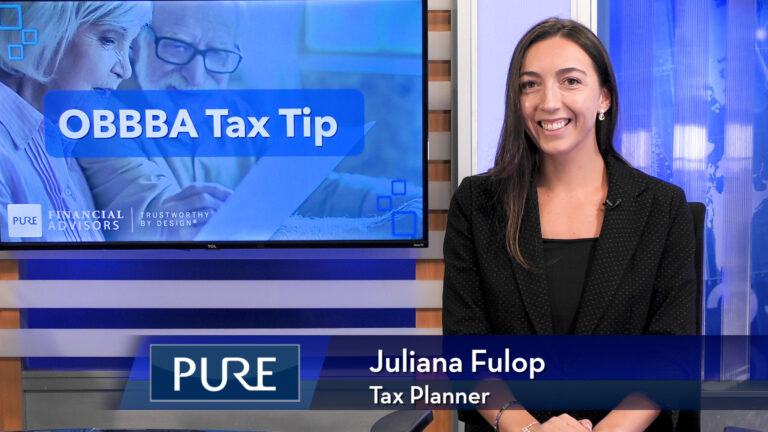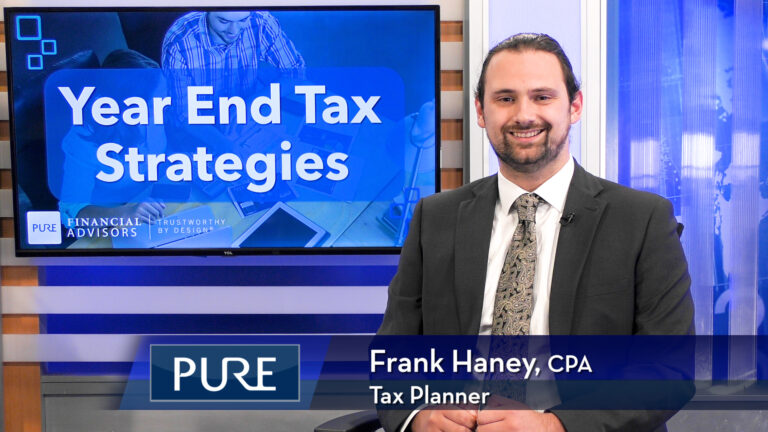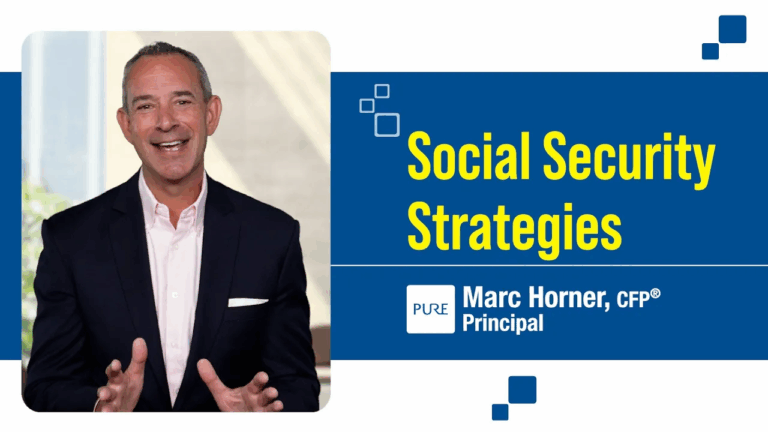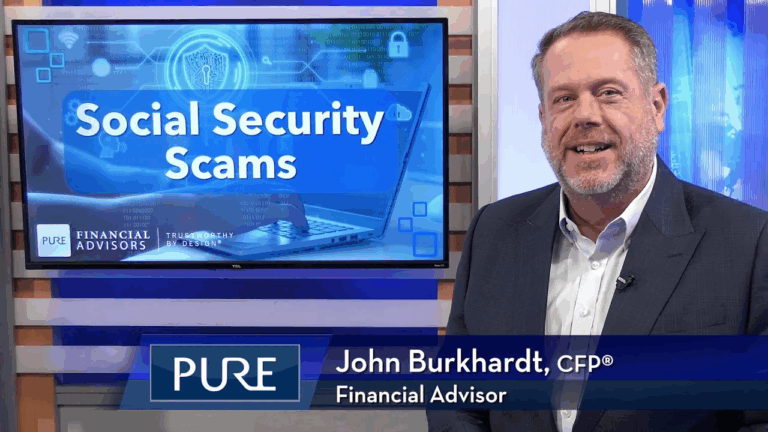Retirement planning may seem complicated and daunting. However, it’s essential to understand, especially as we’re experiencing longer lifespans and diminishing external support systems. Pure’s Financial Planner, Sumit Mehta, CFP®, AIF®, examines five critical retirement spending needs, ensuring you’re prepared to transition into retirement with confidence and peace of mind.
- Healthcare
- Social Security
- Investment Management
- Tax Planning
- Estate Planning
FREE GUIDE | Retirement Readiness Guide
Transcript
It’s no surprise that recent surveys rank retirement readiness near the top of the list of concerns people have today, and over 60% of survey respondents claiming it as their single biggest concern.
So, are you ready for retirement? To begin to answer this question, you will need an accurate estimate of your retirement spending needs and that task is difficult by itself.
Healthcare
The factors contributing to this difficulty is that costs continue to rise with inflation which in itself is difficult to predict. Healthcare costs in particular continue to outpace inflation and cause considerable angst for retirees as health care simply takes a larger share of expenses over time. The average 65 yr old couple retiring today will spend over $315,000 on healthcare making this the one of the single highest retirement expense buckets.
It’s important to understand your health insurance options, to take advantage of tax-favored plans such as HSAs, to understand how Medicare fits into your overall plans and to remain a smart healthcare shopper given the various options available to you.
Social Security
Now, another factor at play is Social Security. Many retirees rely on their Social Security checks as their only or primary source of income. Many retirees think of retiring and taking Social Security as one decision, and it’s important to treat these as two entirely separate choices. The right age to retire is a personal and financial choice, the age at which to take Social Security is a separate choice and dependent on your individual circumstances.
In general, delaying Social Security is often a better choice if you can afford it. If you collect Social Security benefits at age 70 vs age 62, you get a whopping 77% increase in your monthly check. This is extra money every month for the rest of your life and taking Social Security early means you give up the extra income permanently. Unless you need the money or have a lower-than-average life expectancy, it is better to wait to claim benefits. If you have already made a mistake and claimed benefits too early, you still have a year to change your mind. If you’re married, it is important to coordinate claiming strategy to maximize your collective income.
Investment Management
Another important retirement topic is your investment portfolio. Every investor has two investment phases in life. The accumulation phase where you’re saving and investing, and the distribution phase where your investments support your lifestyle and spending needs. The goal in the first phase is to generate returns and have your money working hard for you, while the goal in the second phase is to safeguard your money so it can last you for the rest of your life. Your risk tolerance is therefore different between these phases and your mix of stocks and bonds needs to change over time.
It is important to review this mix, or your asset allocation, on an ongoing basis. Are you taking the least amount of risk needed for the return you’re trying to generate – and put differently – are you generating the highest return for the level of risk you’re willing to tolerate. Do you have an optimal portfolio, and have you done the work needed to enjoy the dual benefits of the same? Most people generate a personal return far lower than the market because they let emotion or history drive investment decisions often to their detriment.
It’s important to be globally diversified, to be patient over multiple market cycles, know you are investing for the long term, and to let the markets work for you rather than you working against yourself. It helps to use strategies such as asset location and tax loss harvesting to produce higher net after-tax returns, and also to pay attention to product fees and transaction costs along the way.
Tax Planning
Taxes are another big area that can make a big difference in retirement. People are surprised to learn that they may have a higher tax rate in retirement than they did when they were working and this is primarily because we have more income streams in retirement. Social Security and pension income is taxed, as is rental and other investment income. Advanced tax planning is important and can give you more control over your tax rate now and in the future.
There are three different types of tax environments: tax free, tax deferred and taxable, and while you may have accounts in all three, most retirement savings are in tax-deferred accounts and are taxed at the highest of tax rates when accessed. That tax-deferred money, think IRAs and 401(k)s, is also forced out at a certain age in the form of RMDs or required minimum distributions so that the IRS can collect taxes on it. Strategically diversifying your assets over time will give you more control over the taxes you pay.
Estate Planning
Estate planning is yet another important part of retirement and legacy planning. Now, don’t think that you have to have a certain amount in assets to have an estate plan, your estate is comprised of everything you own, no matter what the size is and in order to protect this and have your wishes be met when you are no longer around to enforce them, an estate plan is needed. You will need a trust, a will, financial and medical powers of attorney, and a health-care directive. Once these documents are in place, ensure that your family knows how to access them when the need arises and that they are reviewed every 3 to 5 years to stay current with law changes.
Subscribe to our YouTube channel.
IMPORTANT DISCLOSURES:
• Investment Advisory and Financial Planning Services are offered through Pure Financial Advisors, LLC, a Registered Investment Advisor.
• Pure Financial Advisors LLC does not offer tax or legal advice. Consult with your tax advisor or attorney regarding specific situations.
• Opinions expressed are subject to change without notice and are not intended as investment advice or to predict future performance.
• Investing involves risk including the potential loss of principal. No investment strategy can guarantee a profit or protect against loss in periods of declining values.
• All information is believed to be from reliable sources; however, we make no representation as to its completeness or accuracy.
• Intended for educational purposes only and are not intended as individualized advice or a guarantee that you will achieve a desired result. Before implementing any strategies discussed you should consult your tax and financial advisors.
CFP® – The CERTIFIED FINANCIAL PLANNER™ certification is by the Certified Financial Planner Board of Standards, Inc. To attain the right to use the CFP® designation, an individual must satisfactorily fulfill education, experience and ethics requirements as well as pass a comprehensive exam. Thirty hours of continuing education is required every two years to maintain the designation.
AIF® – Accredited Investment Fiduciary designation is administered by the Center for Fiduciary Studies fi360. To receive the AIF Designation, an individual must meet prerequisite criteria, complete a training program, and pass a comprehensive examination. Six hours of continuing education is required annually to maintain the designation.













